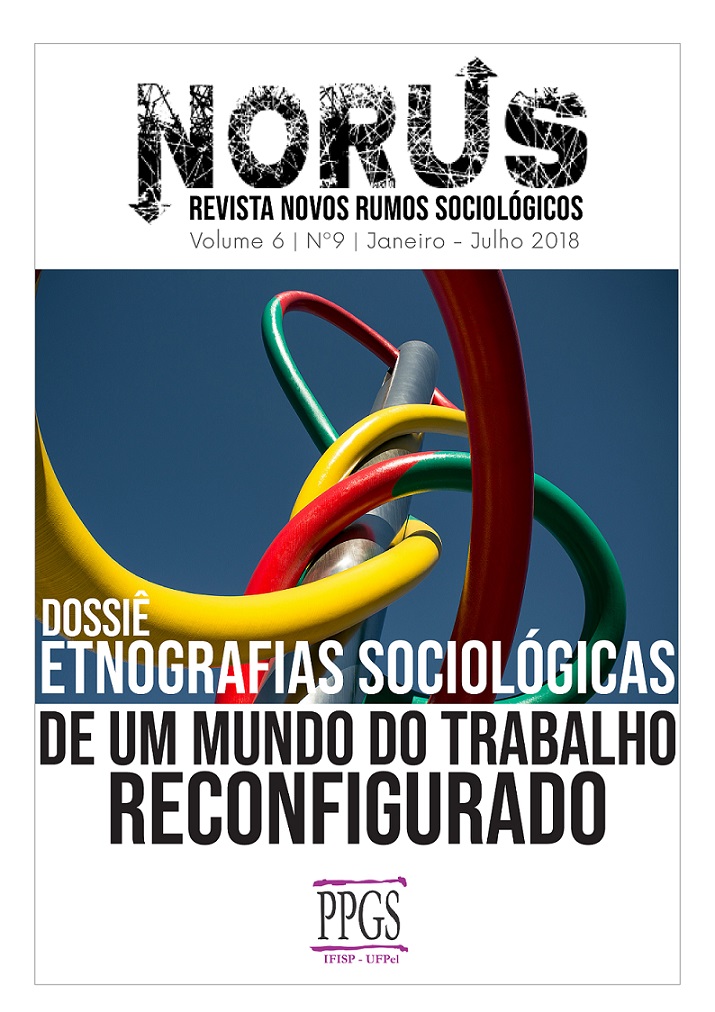Reports on an ethnography of work at the Naval Pole of Rio Grande
the possibility of an ethical and aesthetic experience in the process of construction of research objects
Abstract
This article aims to provide an account of the methods, practices and techniques used during the research on the conflicts that occurred in the city of Rio Grande / RS between 2013 and 2016, which involved local and foreign workers due to the installation of the naval pole. Taken as a set of techniques forged in the interaction with the universe of research, ethnography is defined by its application in a given singular situation, in the challenges it proposes to face and in the way in which it potentially surpasses them. As a method of research and epistemological practice, ethnography is decisive for addressing thematic axes such as work, especially with regard to the different faces and dimensions in which it is manifested in contemporary society and which escape the traditional instruments of analysis. Moreover, ethnography offers an enriching experience to the researcher, opening for the improvisation of instruments through their emotional and sensitive levels, thus requiring the mobilization of ethical and aesthetic components.


